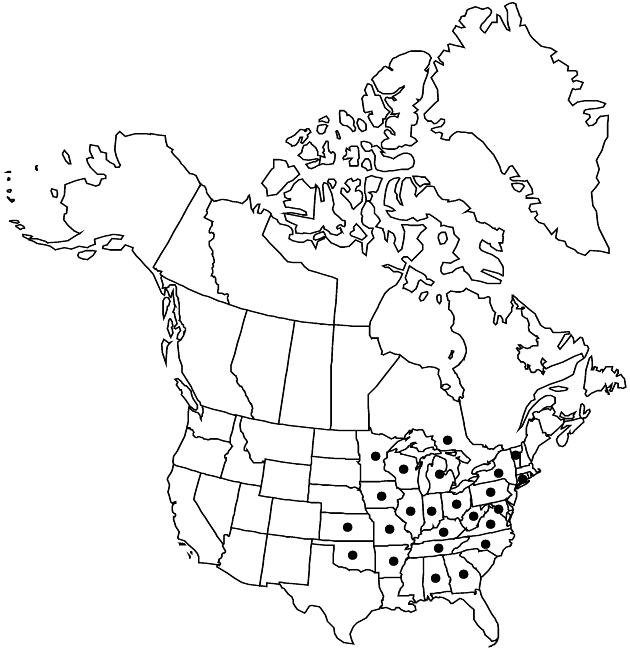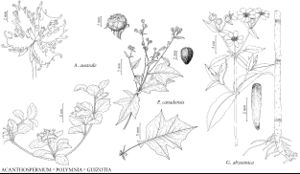Difference between revisions of "Polymnia canadensis"
Sp. Pl. 2: 926. 1753.
Treatment appears in FNA Volume 21. Treatment on page 39.
FNA>Volume Importer |
FNA>Volume Importer |
||
| Line 46: | Line 46: | ||
|publication year=1753 | |publication year=1753 | ||
|special status= | |special status= | ||
| − | |source xml=https://jpend@bitbucket.org/aafc-mbb/fna-data-curation.git/src/ | + | |source xml=https://jpend@bitbucket.org/aafc-mbb/fna-data-curation.git/src/8f726806613d60c220dc4493de13607dd3150896/coarse_grained_fna_xml/V19-20-21/V21_76.xml |
|tribe=Asteraceae tribe Heliantheae | |tribe=Asteraceae tribe Heliantheae | ||
|subtribe=Asteraceae (tribe Heliantheae) subtribe Polymniinae | |subtribe=Asteraceae (tribe Heliantheae) subtribe Polymniinae | ||
Revision as of 15:37, 18 September 2019
Perennials. Stems pilosulous to villous and/or stipitate-glandular. Leaves: petioles 3–8(–12+) cm, sometimes raggedly winged; blades 4–20(–40+) × 2–12(–25+) cm, larger usually deeply pinnately lobed, lobes 5–7. Cypselae 3–4 mm, 3-angled or -ribbed. 2n = 30.
Phenology: Flowering May–Aug(–Oct).
Habitat: Damp, shaded sites, calcareous soils
Elevation: 100–1000 m
Distribution

Ont., Ala., Ark., Conn., D.C., Ga., Ill., Ind., Iowa, Kans., Ky., Mich., Minn., Mo., N.Y., N.C., Ohio, Okla., Pa., Tenn., Vt., Va., W.Va., Wis.
Discussion
Selected References
None.
Lower Taxa
None.
